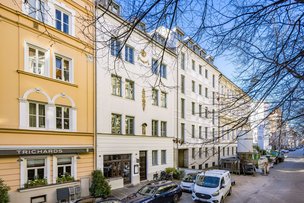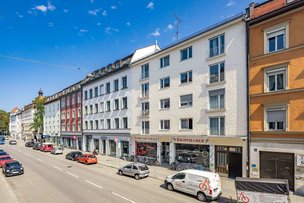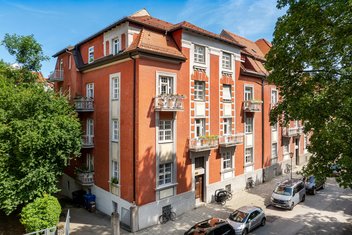News on the market for apartment buildings in Munich
Status: February 2021

As listed here, yields (or interest rates) are the decisive variable by which the price development of multi-family houses can be read. They indicate the relationship between rental income and purchase price. The Munich Valuation Committee publishes these interest rates in its annual report.
In recent years, we have seen a sharp reduction in interest rates in Munich: while the average interest rate in 2010 was still around 3% (= factor 33), it is now around 1.5% (= factor 66). This corresponds to a doubling of purchase prices.
Due to low (prime) interest rates and partly negative yields on government bonds, investors are looking for alternative forms of investment. Real estate offers a good hedge. However, acquiring and renting out individual apartments is too costly for larger investment volumes - which is why entire apartment buildings are very popular with investors.
In addition, real estate is considered a good hedge against feared inflation. This fear has been given additional impetus based on the large amounts of money distributed by the Corona aid packages.
On this basis, the demand for multi-family houses as an investment is particularly high despite - or even because of - the Corona pandemic.
How to sell your apartment building in Munich
Selling your apartment building in Munich involves numerous important considerations. On the one hand, an attractive sales price should of course be achieved. On the other hand, reputable buyers as contractual partners are an important criterion. Some real estate sellers also appreciate a special service around their sale, such as a particularly discreet handling or the targeted search for buyers who fit in well with the existing neighborhood.
Here you can find out which special features you should bear in mind when selling your home:
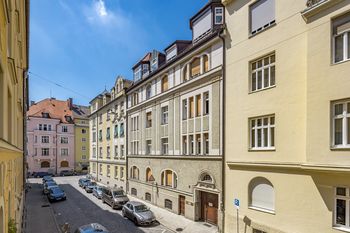
Often the first question when selling: What is my apartment building worth?
Multi-family houses are usually sold and bought as capital investments. Therefore, the valuation is based on the return that a potential buyer can generate with the house. The valuation method usually used is the capitalised earnings value method. This method is relatively complex in detail. But with a few simplifications and information, the approximate value of your house can be calculated:
The basis for calculating the capitalised earnings value is the gross income that can be generated in line with the market, i.e. the rental income of the property assuming that all units are let at market rents. Costs that cannot be passed on to the tenants (e.g. administration, maintenance, loss of rent) are deducted from this. The net income must then - in simplified terms - offer the buyer a market rate of return on the purchase price paid. In Munich, these yields are around 1.50% - 2.50%, depending on location, type of house and condition.
As a simple example: Your house generates 100,000 € rent per year and the rents correspond to the market rents. The non-apportionable service charges amount to 10%, leaving a net income of € 90,000. Dividing this net income by a yield of 2.00% results in a value of the house of € 4.50 million.

In Munich in particular, however, the current rental income is often far below the market rent. Therefore, one uses the market rent (possibly after renovation) for the valuation and later deducts the renovation costs and the time of letting from the current (lower) letting.
Example: Your house generates €40,000 rent per year and the market rent is €100,000, which equals €60,000 rent difference. The non-apportionable service charges amount to 10%, leaving a sustainable gross profit of €90,000. With a yield of 2.00%, this results again in a value of 4.50 million €. Assuming that it takes 5 years to re-let all units on average, 5 x 60,000 € rent difference = 300,000 € is deducted from this value. The value of the house would then be around €4.20 million.
By the way: the often used factor or multiplier is nothing else than the reciprocal of the yield: 1/2.00% = factor 50.
In the end, however, there is also the question: what perspective can you show a buyer for your house? Are there additional building rights? Can the rent be increased by specific renovations? What is the house worth when it is completely renovated?
RIEDEL employs certified appraisers who will competently appraise your property to determine what your home is worth to a buyer. In doing so, we take into account all factors that justify an above-average purchase price for you as the seller.
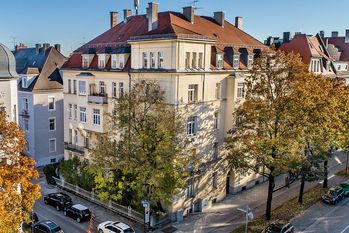
Targeting the right prospects
Since multi-family houses in Munich can quickly be worth several million, the right approach to solvent interested parties for the sale at an attractive purchase price is of the utmost importance. Of course, you can offer your apartment building on a real estate portal or in the newspaper. However, we have made the experience that high-net-worth investors often do not look for houses themselves. They wait until a suitable house is actively offered to them.
At RIEDEL, we have the right personal connections and a portfolio of well-funded clients through regular multi-family sales: high-net-worth private buyers, developers, subdividers and family offices can thus be offered your home directly. What's more, because of our reputation as a reputable seller, these clients often pay close attention to our listings.
Preparation of the sale
For the sale of your multi-family house, some documents are required which are relevant for the valuation and are usually requested by all interested parties:
- Current extract from the land register
- Floor plans of the entire house and all units, if possible from the building permit
- Current rental agreements including addenda and information on rent increases and deposits
- Service charge statements for the last 2-3 years
- Information on the state of the apartments' furnishings and fittings
- A list of the renovation measures of the house, in particular to the roof, the heating and the pipe systems
- A list of existing contracts for the house, e.g. with the property management, caretaker, maintenance contracts etc.
- Energy certificate
- Insurance certificates
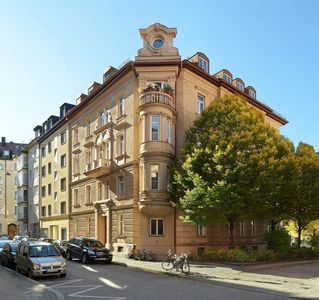
RIEDEL will take care of compiling all the necessary documents for you. This provides a prospective buyer with a good insight into the property and thus creates the confidence needed for the purchase.

Exposé: the optimal presentation of your house
Even though potential buyers of multi-family houses often act out of financial motives and professionally, an attractive presentation of your house is important: even professionals cannot avoid an attractive presentation. Attractive photos, clear floor plans and a detailed description of your house are therefore important success factors.
In addition to the attractive presentation, the exposé must offer sufficient information to arouse the customer's serious interest and motivate him to view the property.
RIEDEL therefore usually produces 30-40 page exposés with professional photos, newly drawn and up-to-date floor plans and an editorial text. Clear unit lists and serious calculations make the exposé a compendium for the buyer with almost all the information he needs for the purchase.

Showings in apartment buildings: More than just showing the house
In contrast to a detached house, viewings are often professional discussions accompanied by a tour of the house. Is a lift extension possible? How are the plumbing and heating systems designed? Are the leases current? Do the units conform to the approved use? What renovation needs exist? These are common questions that arise in the process.
However, it would be fatal to show all apartments to every interested party: Your tenants will not tolerate constant disturbances and viewings would then become difficult or impossible. We first guide customers through the common areas such as the cellar, staircase, garden and, if applicable, an easily accessible apartment. Only when there is concrete interest in buying do we show customers around all the flats on request.
In the end, it is all about inspiring the customer for the house: for the current condition or often also for what can be done with the house.
Negotiations and purchase agreement: not
only the purchase price counts
The negotiation is, of course, primarily about the purchase price. This can be achieved much better with the help of our value assessment based on rational assumptions than simply demanding an estimated purchase price.
However, there is often more to it than that: in what condition and when will the buyer take over the house? When does he pay the purchase price? When is he entitled to the rental income? Is the owner allowed to stay in the house? What guarantees does the seller have to give the buyer?

All these questions are answered in the purchase contract. Of course, we accompany you in the preparation of the contract by an experienced notary's office.
Important to know: the notary does not advise you as a seller legally, fiscally or economically. He only implements what is economically intended in a legally binding contract. However, the notary does not know the house, all verbal agreements or your personal needs. You must therefore tell him what is to be regulated in the contract and how.
RIEDEL has the expertise from the numerous sales of multi-family houses to be able to advise you in all areas on the usual regulations. Should you require further specialist advice, we will be happy to recommend suitable lawyers, tax advisors or financial consultants.
Through careful preparation and coordination of the contract, we ensure that you do not experience any surprises at the notary appointment. Of course, we will accompany you personally to this important appointment.
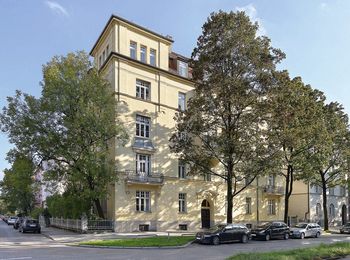
Payment of the purchase price and handover: the conclusion of the sales process
After the purchase contract has been signed, the notary's office takes over the processing of the contract and informs the parties of the purchase price due date. The notary also takes care of the cancellation of the land charges. However, he does not check, for example, whether the house is in a condition in accordance with the contract when it is handed over. This includes the technical condition, but also the legal condition, e.g. whether the units are still rented or not. The notary's office also does not assist you with the handover of documents, deposits and keys.
RIEDEL will of course accompany you to the very end: that is, until the purchase price has been received in full and all questions from you and the buyer have been clarified.
In the end, we believe - and it is our claim - to provide a valuable service for you. After all, we have been living off the recommendations of our customers for almost 40 years.





